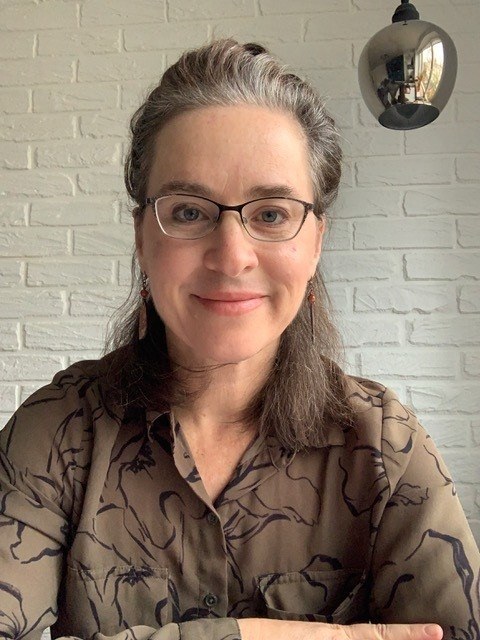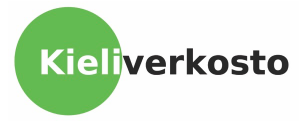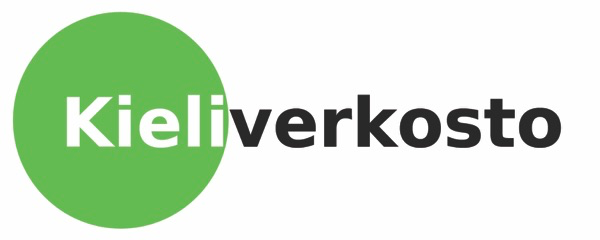Registration open: Kari Sajavaara memorial lecture on Fri, 17 January 2025 at 12 pm - talk by Associate Professor Kara D. Brown / Kari Sajavaara -muistoluento pe 17.1.2025 - ilmoittaudu!
(Katso suomeksi alempaa)
Associate Professor, PhD Kara D. Brown (University of South Carolina) has been invited as the keynote speaker for the annual Kari Sajavaara memorial lecture. The title of her lecture is: The right teacher in the right place: Insights from three Estonian cases on teacher interest and motivation to participate in new language programs.
Dr. Kara Brown researches educational equity and language issues in education. As an educational anthropologist, she explores these themes through examinations of the socio-cultural context of language in schools, the state’s role in structuring educational opportunity, and international teacher migration. Her regional expertise is focused on the Baltic States, particularly Estonia, where she conducts the bulk of her ethnographic fieldwork and has more than two decades of research experience. Dr. Brown’s research serves scholarly and practical ends: first, to contribute to better theory in the anthropology of education and comparative education, and second, to support the advancement of more equitable education policies.

After the lecture, two awards bearing the name of Kari Sajavaara will be given out; one for a scientifically meritorious doctoral thesis and the other for socially significant work done in the field.
Coffee and tea will be served. The event is multilingual: in English (the lecture) and in Finnish (awards).
If you cannot make it to the event, the lecture will also be live streamed online, and the recording can be watched later. Link to the stream will be sent via email to the registered participants closer to the event.
Please register by Tue 7, Jan 2025 in Webropol, whether you participate online or in person.
Link: https://link.webropolsurveys.com/S/CE873DA67C2DC8A9
Brown describes her keynote followingly:
The “burying” of language diversity and language-learning opportunities in schools through repressive policies and practices is an all too familiar global phenomenon. In an effort to understand the efforts to redress this burying and to advance educational environments supportive of multilingualism, I embrace the metaphor of daylighting – the contemporary urban-planning practice of uncovering long-hidden waterways to restore and rehabilitate ecological diversity for collective betterment. The concept of “linguistic daylighting,” derived from this metaphor, refers to the process of revitalizing, or supporting, linguistic diversity in schools by removing a range of obstructions (e.g., laws, policies), which suppressed and/or obscured multilingualism in the spaces of public education. Daylighting, through thoughtful planning and support, helps to create a socio-/cultural ecosystem supportive of a thriving multilingualism. In short, linguistic daylight works to shift school practices and environments from “subtractive” to “additive” ones (Valenzuela, 1999).
This lecture takes up the daylighting concept by examining teacher interest in participating in three different language initiatives in Estonia: Võro Language Nests (pre-primary level), dual language immersion kindergartens, and Estonian-language state upper secondary schools in the northeast. These programs and policies have centered and depend upon the interest and language abilities of area, and with two programs already “in-house,” teachers. After introducing the linguistic daylighting concept, I share my analysis based largely on teacher interview data collected from 2013-2019 and 2023-2024. I consider key episodes of language “burying” in teachers lives given the complex historic role of schools in suppressing, or supporting, their language use. I also examine the teachers’ experience of daylighting including their reflections on language ability and the role of support from the larger teaching collective, community, and supporting institutions. I conclude with thoughts on the fragility and sustainability of linguistic daylighting projects.
Reference: Valenzuela, A. (1999). Subtractive schooling: U.S.-Mexican youth and the politics of caring. SUNY Press.
The Finnish Network for Language Education Policies (Kieliverkosto) and Centre for Applied Language Studies (CALS) organize Kari Sajavaara memorial lecture annually. The lecture is dedicated to the memory of Professor Kari Sajavaara (1938‒2006) who was a versatile and active researcher and actor in the field of applied language studies and language education policies. He was a professor and director at the Centre for Applied Language Studies, from where he retired in 2003. Sajavaara was also an active international networker and the co-founder of the European Language Council. Kari Sajavaara was Vice-Rector of the University of Jyväskylä in 1982‒1991 and Dean of the Faculty of Humanities in 1996‒2002.
Welcome!
On behalf of the Finnish Network for Language Education Policies and Centre for Applied Language Studies
Essi Laitinen
essi.l.h.laitinen@jyu.fi / kieliverkosto@jyu.fi

***
Kielikoulutuspolitiikan verkosto (Kieliverkosto) ja Soveltavan kielentutkimuksen keskus (SOLKI, JYU) järjestävät perinteisen Kari Sajavaara -muistoluennon perjantaina 17.1.2025 klo 12.00–14.30 Seminariumin vanhassa juhlasalissa (S212) Seminaarinmäellä, Jyväskylän yliopistossa.
Pääpuhujaksi on kutsuttu apulaisprofessori, PhD Kara D. Brown (Etelä-Carolinan yliopisto). Hänen luentonsa otsikko on: The right teacher in the right place: Insights from three Estonian cases on teacher interest and motivation to participate in new language programs. Katso luennon kuvaus alempana.
Brownin esittely: Dr. Kara Brown researches educational equity and language issues in education. As an educational anthropologist, she explores these themes through examinations of the socio-cultural context of language in schools, the state’s role in structuring educational opportunity, and international teacher migration. Her regional expertise is focused on the Baltic States, particularly Estonia, where she conducts the bulk of her ethnographic fieldwork and has more than two decades of research experience. Dr. Brown’s research serves scholarly and practical ends: first, to contribute to better theory in the anthropology of education and comparative education, and second, to support the advancement of more equitable education policies.
Luennon jälkeen jaetaan kaksi Kari Sajavaaran nimeä kantavaa tunnustuspalkintoa, toinen ansiokkaasta soveltavan kielentutkimuksen alan väitöskirjasta ja toinen yhteiskunnallisesti merkittävästä työstä.
Tilaisuudessa on kahvitarjoilu. Tilaisuus on englanniksi (luento) ja suomeksi (palkintojenjako).
Jos et pääse paikalle, luentoa voi seurata etänä ja sen voi katsoa myöhemmin myös tallenteena. Linkki tilaisuuteen lähetetään ilmoittautuneille lähempänä tilaisuutta.
Ilmoittaudu tilaisuuteen ti 7.1.2025 mennessä ja kerro, osallistutko paikan päällä vai etänä. Ilmoittautuminen: https://link.webropolsurveys.com/S/CE873DA67C2DC8A9
Brownin kuvaus luennon sisällöstä:
The “burying” of language diversity and language-learning opportunities in schools through repressive policies and practices is an all too familiar global phenomenon. In an effort to understand the efforts to redress this burying and to advance educational environments supportive of multilingualism, I embrace the metaphor of daylighting – the contemporary urban-planning practice of uncovering long-hidden waterways to restore and rehabilitate ecological diversity for collective betterment. The concept of “linguistic daylighting,” derived from this metaphor, refers to the process of revitalizing, or supporting, linguistic diversity in schools by removing a range of obstructions (e.g., laws, policies), which suppressed and/or obscured multilingualism in the spaces of public education. Daylighting, through thoughtful planning and support, helps to create a socio-/cultural ecosystem supportive of a thriving multilingualism. In short, linguistic daylight works to shift school practices and environments from “subtractive” to “additive” ones (Valenzuela, 1999).
This lecture takes up the daylighting concept by examining teacher interest in participating in three different language initiatives in Estonia: Võro Language Nests (pre-primary level), dual language immersion kindergartens, and Estonian-language state upper secondary schools in the northeast. These programs and policies have centered and depend upon the interest and language abilities of area, and with two programs already “in-house,” teachers. After introducing the linguistic daylighting concept, I share my analysis based largely on teacher interview data collected from 2013-2019 and 2023-2024. I consider key episodes of language “burying” in teachers lives given the complex historic role of schools in suppressing, or supporting, their language use. I also examine the teachers’ experience of daylighting including their reflections on language ability and the role of support from the larger teaching collective, community, and supporting institutions. I conclude with thoughts on the fragility and sustainability of linguistic daylighting projects.
Reference: Valenzuela, A. (1999). Subtractive schooling: U.S.-Mexican youth and the politics of caring. SUNY Press.
Kielikoulutuspolitiikan verkosto (Kieliverkosto) ja Soveltavan kielentutkimuksen keskus (Solki) järjestävät muistoluennon vuosittain professori Kari Sajavaaran (1938–2006) kunniaksi. Hän oli monipuolinen tutkija soveltavan kielentutkimuksen ja aktiivinen toimija kielikoulutuspolitiikan alalla. Tehtyään pitkän uran Jyväskylän yliopiston englannin kielen laitoksella hän siirtyi vuonna 1996 Soveltavan kielentutkimuksen keskuksen johtajaksi, mistä hän jäi eläkkeelle vuonna 2003. Sajavaara oli myös kansainvälisesti tunnustettu verkostoituja ja European Language Councilin perustajajäsen. Kari Sajavaara toimi Jyväskylän yliopiston vararehtorina vuosina 1982–1991 ja humanistisen tiedekunnan dekaanina vuosina 1996–2002.
Lämpimästi tervetuloa!
Kieliverkoston ja SOLKIn puolesta
Essi Laitinen
essi.l.h.laitinen@jyu.fi / kieliverkosto@jyu.fi

